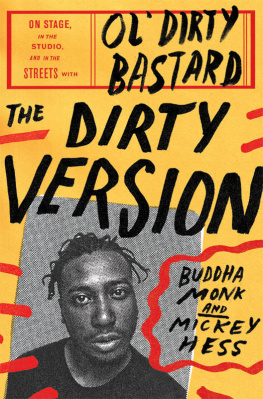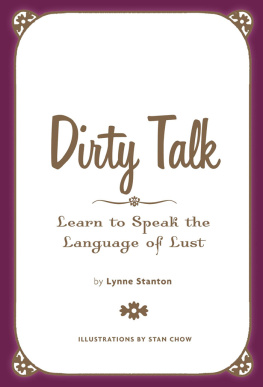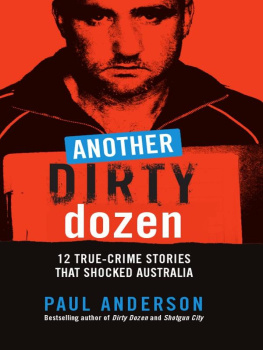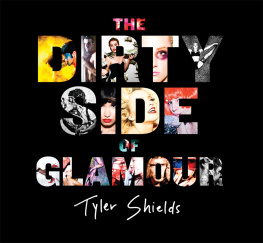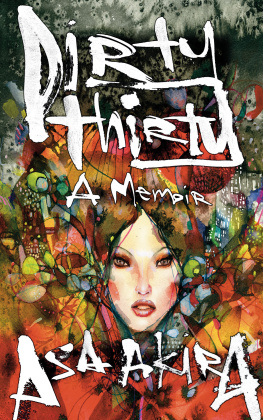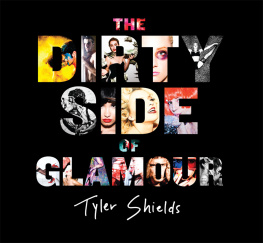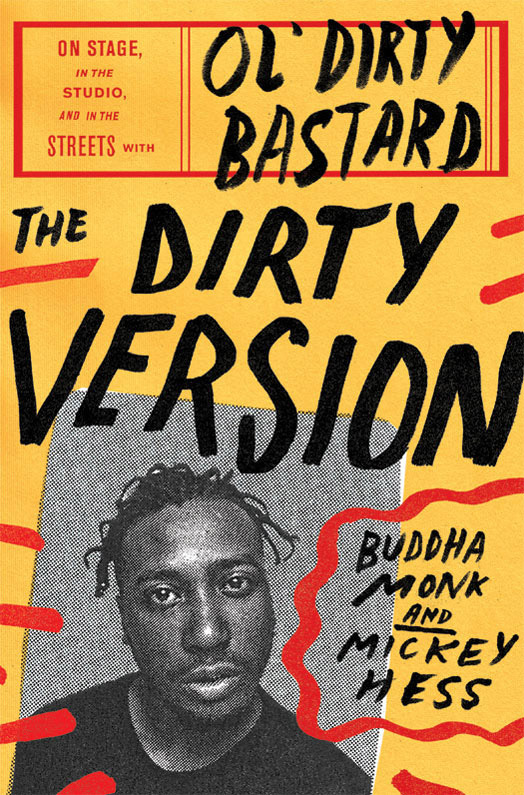
THE DECIDEDLY ROMANTIC IDEA IS THAT NOT BEING ABLE TO GIVE A FUCK HOLDS INFINITELY BOLDER POTENTIAL THAN CHOOSING TO NOT GIVE A FUCK. DESTINY IS DEFINITELY PART OF THE EQUATION. SOME FOLKS ARE BORN TO BE FREE IN THIS WAY.
DREAM HAMPTON, ON OL DIRTY BASTARD
MOTOR MOUTH, CLOWN OF CLASS WARFARE, WELFARE MILLIONAIRE....
YOUR CARELESSNESS REMINDS US HOW QUICK WE ARE TO JUDGE, HOW SERIOUS THINGS DONE BECOME. DIRTY AS THE SOUTH, SWEET AS NEON CHERRY PIE FILLING FROM A CAN.
KEVIN YOUNG, FROM ODE TO OL DIRTY BASTARD
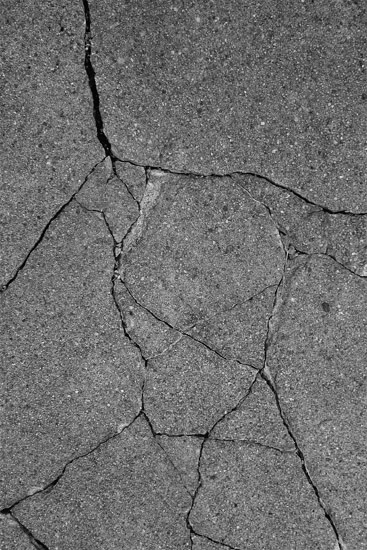
CONTENTS
R ussell Tyrone Jones was best known as Ol Dirty Bastard of the hip-hop supergroup the Wu-Tang Clan, but before that he rapped as Ason Uniquethe name his cousin Islam gave him in his teens, when he became involved with the Nation of Gods and Earths (the Five Percent Nation). Just as Cassius Clay changed his name to Muhammad Ali in 1964 when he converted to the Nation of Islam and left behind his English slave name for a righteous Arabic name, the young Russell Jones followed the Five Percenter tradition to adopt a new name that would speak for himself in English, the language he spoke every day. Jones began to go by A Son Unique, or Ason Unique. It was a name and a label that he never left behind, as he sang, shouted, and spelled out his Ason Unique in songs by the Wu-Tang Clan and in his own solo releases. The name fit: it was Dirtys uniqueness that led his fellow Wu-Tang member Method Man to explain that the group called him the Ol Dirty Bastard because there aint no father to his style.
Dirtys style of rap was unique. His rhyme style ranged from drunkenly slurred to growled, crooned, and warbled to shouted, grunted, and screamedoften all within the same verse. The first time I heard Ol Dirty Bastards Goin Down I was sure I was listening to three different rappers on the song. After a nearly one-minute intro of sustained croaking that eventually builds to a wobbling high note, Dirty begins the first verse by spelling out Unique God (Five Percenters often refer to each other as Gods) in a low, breathy voice that almost registers as a whisper until his voice raises in pitch and volume as he draws out the last syllable: Im the U-N-I, the Q-U-E, the G to the O-Deeeeeeee. Then halfway through the song hes singing Over the Rainbow while his wife berates him for getting with groupies.
Dirty made his recorded debut in 1992, on Wu-Tang Clans self-released single Protect Ya Neck, which would be included on their album Enter the Wu-Tang (36 Chambers). Wu-Tang Clanone of hip-hops most enduring groupsemerged at a moment when hip-hops focus was shifting from the group to the solo artist. The early nineties marked a new era of raps solo superstars, as MC Hammer and Vanilla Ice broke the sales records set before them in the eighties by groups such as Run DMC and N.W.A. While Hammer and Ice achieved pop superstardom in 1990, contract disputes held up the release of a new Run DMC album. N.W.A broke up in 1991, and by 1992 its former members Ice Cube, Dr. Dre, and Eazy-E had each released solo albums taking shots at their former partners. Having billed themselves as the worlds most dangerous group, N.W.A broke up over the kind of monetary disputes that might end any business partnership: Ice Cubethe first member to leaveclaimed that Eazy-E and the groups manager Jerry Heller were keeping an inordinate amount of N.W.As profits for themselves, and Dr. Dre soon followed Cube out the door. Dre then left Heller and Eazys Ruthless Records to form Death Row Records with Marion Suge Knight amid accusations that Suge and his soldiers had threatened Eazy with violence in order to secure Dres release from his contract. By 1992, hip-hop had become big business, and the rappers who would excel in the next decades came to develop a business acumen that rivaled their street knowledge. Jay-Z would soon claim to have parlayed the skills he learned in the drug trade into a new approach to the music industry, but before Jay released his first record he watched the ever-strategic Wu-Tang Clanwhose members shared a fascination with the game of chessmake a legendary opening move.
Wu-Tang Clan used the success of their self-released single to leverage an unprecedented recording contract that allowed each of the Clans nine members the freedom to record as a solo artist for any label he chose. This ingenious contract condition set the stage for Wu-Tang Clan to become hip-hops most important new group of the nineties: as its members established successful solo careers it would only strengthen the groups brand. For the plan to work, each man in the Clan had to stand out with his own style, swagger, and star quality. Each Wu-Tang member would have to bring something unique to the table. Enter the man with no father to his style, the man who called himself Unique. Enter Russell Jones, whose personality was so big that it came to overshadow his music.
Just as there was no father to Dirtys unique style, there was no precedent for a hip-hop star to lift a burning car off a four-year-old girl, or take a limousine to pick up his familys welfare check, or escape from court-mandated rehab for a sneak appearance onstage with his group on the other side of the countryand make it out of the venue without getting arrested. Dirty shoplifted sneakers with hundreds of dollars in cash in his pocket. He sunbathed nude on a hotel balcony in Berlin. He loved taking his children to Coney Island, but he faced a judge over unpaid child support. When President Bill Clinton was proposing welfare reform to end welfare as a way of life, Dirty used his welfare card in the cover art for his album.
Dirty quickly became disillusioned with touring and began missing studio sessions and scheduled appearances with the Wu-Tang Clan. He became so infamous for missing shows that fans were surprised when he did show up. Dirty succumbed to the same excesses of drugs, alcohol, and sex that lure in so many popular musicians, but at the same time he suffered from his insistence on remaining a part of the Brooklyn neighborhoods that raised him. Robberies and attempts on his life left him paranoid and convinced he was the next man to die in the series of unsolved murders of rap stars that saw Tupac Shakur and the Notorious B.I.G. shot to death in 1996 and 1997, respectively. It would seem easy enough to dismiss Dirtys theories of a government conspiracy against him, but even the cops were shooting at Dirty. In February 1999just one day before officers from the NYPDs Street Crimes Unit shot and killed the unarmed Guinean college student Amadou Dialloa Brooklyn grand jury ruled that Dirty should not face charges in connection with an incident in which plainclothes officers from the same unit fired on Dirtys vehicle. Two weeks later, in California, Dirty was the first person ever arrested under a new law that made it illegal for felons to wear body armor.
A rap star for just over a decade, Dirty spent most of the last five years of his life either in court-mandated rehab facilities or in prison. The attempts on his life combined with years of cocaine use produced a profound paranoia that prison exacerbated as his celebrity called attention to himone of the worst moves for a new inmate in a maximum-security prison. He found himself the target of his fellow inmates, who threatened and attacked him. During his final two-year prison term he signed with new management and inked a deal with Roc-A-Fella Records, the label that was home to Jay-Z and Kanye West. When Dirty died just a year later, in 2004, in the Manhattan recording studio where he was working on tracks for a comeback album, he left his family, friends, and fans to wrestle with the question of whether he had succumbed to living out the kinds of experiences that kept his name in the press. Would he be remembered more for his drug arrests than for his music?

